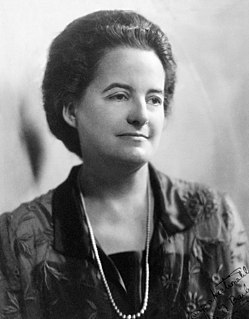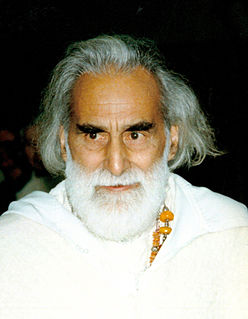A Quote by Watchman Nee
May we always be possessed by the consciousness that we are not our own.
Related Quotes
We live in a society that will send us to prison if we make use of time-honored sacred plants to explore our own consciousness. Yet surely the exploration and expansion of the miracle of our consciousness is the essence of what it is to be human? By demonstrating and persecuting whole areas of consciousness, we may be denying ourselves the next vital step in our own evolution.
There can be no more intimate and elemental part of the individual than his or her own consciousness. At the deepest level, our consciousness is what we are - to the extent that if we are not sovereign over our own consciousness then we cannot in any meaningful sense be sovereign over anything else either.
For me, consciousness is the most interesting unsolved problem of science, and, in fact, we may never know what it is about a particular arrangement of neurons that gives rise to consciousness. Our consciousness, like the air we breathe or like the passage of time, is central to our existence as intelligent beings.
I suggest that just as self-consciousness is the goal for all the subhuman forms of life, and as group consciousness, or the consciousness of the Heavenly Man, is the goal for the human being, so for him, also, there may be a goal, and for him the achievement may be the development of God consciousness.
Mindful consumption is the object of this precept. We are what we consume. If we look deeply into the items that we consume every day, we will come to know our own nature very well. We have to eat, drink, consume, but if we do it unmindfully, we may destroy our bodies and our consciousness, showing ingratitude toward our ancestors, our parents, and future generations.
Consciousness will always be present, though a particular
consciousness may cease. For example, the particular tactile
consciousness that is present within this human body will cease when
the body comes to an end. Likewise, consciousnesses that are
influenced by ignorance, by anger or by attachment, these too will
cease. But the basic, ultimate, innermost subtle consciousness will
always remain. It has no beginning, and it will have not end.
They have no consciousness therefore. Therefore what? Therefore we are free to use them for our own ends? Therefore we are free to kill them? Why? What is so special about the form of consciousness we recognize that makes killing a bearer of it a crime while killing an animal goes unpunished?...all this discussion of consciousness and whether animals have it is just a smokescreen. At bottom we protect our own kind. Thumbs up to human babies, thumbs down to veal calves.
Whatever plane our consciousness may be acting in, both we and the things belonging to that plane are, for the time being, our only realities. As we rise in the scale of development we perceive that during the stages through which we have passed we mistook shadows for realities, and the upward progress of the Ego is a series of progressive awakenings, each advance bringing with it the idea that now, at last, we have reached "reality"; but only when we shall have reached the absolute Consciousness, and blended our own with it, shall we be free from the delusions produced by Maya [illusion].
I consider morals and aesthetics one and the same, for they cover only one impulse, one drive inherent in our consciousness - to bring our life and all our actions into a satisfactory relationship with the events of the world as our consciousness wants it to be, in harmony with our life and according to the laws of consciousness itself.

































